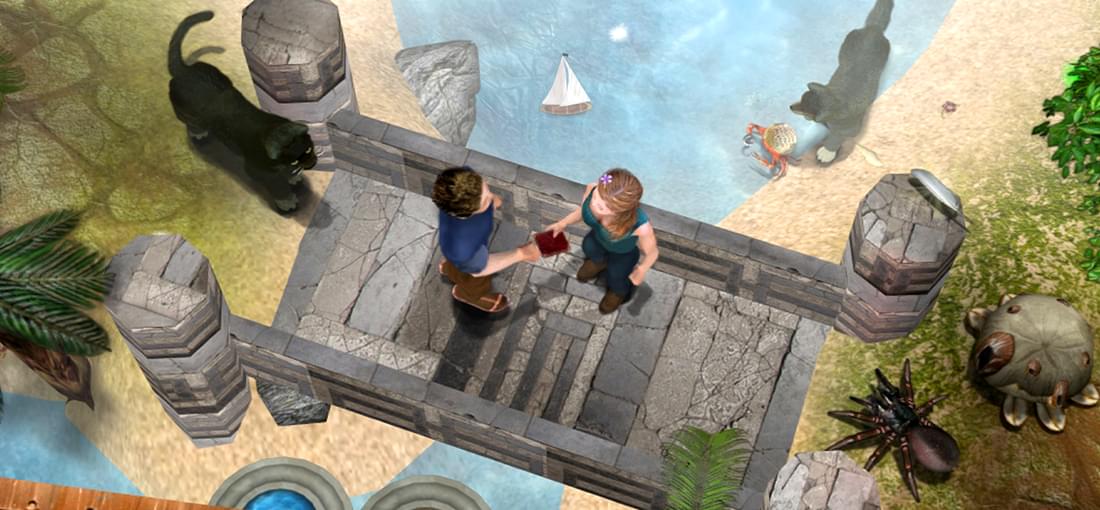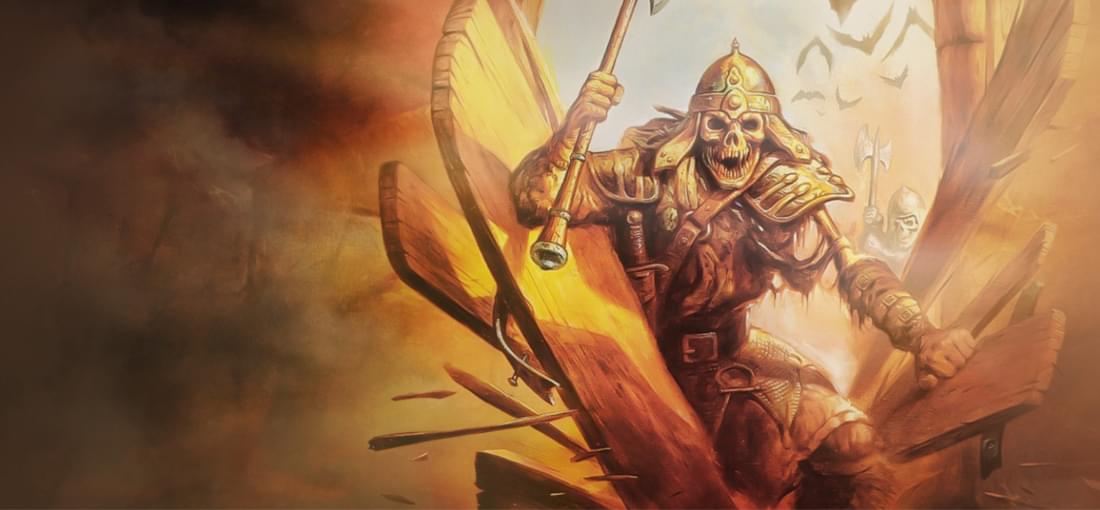


[u]Driftmoon[/u] is a great adventure game with RPG elements that works as an introduction to longer, more involved RPGs, in much the same way that [u]Loom[/u] is an initiation into adventure games. Without this game as a transition, my kids might still be only playing Pokémon as their primary RPG. For myself, I also found [u]Driftmoon[/u] very satisfying due to its length: I am a completionist, and love to do everything and find everything in the games I play. With this game, you get a good story arc and can fully complete the game (including finding all the "secrets") in a relatively short amount of time: it took me about a week of playing an hour or two a day. In [u]Driftmoon[/u], you are given a series of tasks to perform; completing each task unlocks a new area and advances the story to that new area. This linearity is why I call it an adventure game even though in every other way it is an RPG: you can't choose the order in which to complete the quests and you're not free to wander around, exploring the whole game world. That might be tiresome if it went on for a long time, but as I wrote, it's a pretty short, tight little story, and each new story development kept me engaged in the plot. It's very well done..

Eye of the Beholder (EotB) is a reaction to the classic game Dungeon Master: like that game, EotB is a real-time, first-person-perspective dungeon exploration game. As such it is inherently fun, but it does suffer in comparison to Dungeon Master and its sequels. Fun stuff: - EotB features a dungeon that is interactive in first-person perspective: you find secret doors by spotting concealed switches, levers, and (most often) buttons. You can pick up items and throw them at opponents. You can use pit traps to drop enemies onto deeper levels, sometimes killing them. You can equip items onto models of the PCs' bodies, and their carrying capacity is measured by a number of slots as well as the normal weight limits of AD&D. - Monsters are not identified as "goblins" or "orcs" or anything else. You see a creature, and you have to decide whether it's hostile or not. Should you attack that dwarf, or try to strike up a conversation? Not so fun: - EotB uses the AD&D2 rule set. This was designed for turn-based tabletop play, not real-time. As a result, your PCs will die. A *LOT.* HP are low for a real-time game and the interface makes healing slow. Spells that should take one turn can take 3 or 4 (all while a monster is attacking every turn). - You can get stuck and need to restart your whole game if you do things in the wrong order. - Food depletes in real-time (per DM), but HP and spells regenerate only when you rest (per AD&D2). Food is plentiful, but this is still annoyingly unbalanced. I enjoy EotB, but be aware that you may have to restart multiple times to finish it and the UI is frustratingly obtuse, particularly if you've played DM or other games that use both mouse buttons to handle inventory management and have spells on the same page as attack buttons. Tabletop RPG fans should play this only after they've played all the Gold Box games, and video game fans should play this only after the Dungeon Master series.
This platforming exploration game is pure nostalgia for me. It's an Epic MegaGames platformer version of the Wind Waker. The platforming elements really remind me strongly of the Jill of the Jungle series, while the conceit of exploring an archipelago via a small boat reminds me of Wind Waker. The protagonist has a hook instead of a hand, which he can use for hand attacks, as well as navigating the environment (hanging onto rings, hooking onto cliff edges). Unlike earlier platforming games like Biffdrop or Impossible Mission, you don't die if you hit a hazard; instead, you lose a hit point. The game is over when you reach 0/5 HP, but there are fruits scattered sporadically around the islands, which you eat to regain 1 HP per fruit eaten. The game's controls are pretty solid. There's a lot to explore, and each island has goals that advance the story, hidden passageways, and other areas that can't be accessed at first. As you continue through the game, you acquire items (and at least one companion) that enable different abilities. I'm only a couple of hours into the game and so far I'm really enjoying it. The only negative of the game was that it was bizarrely difficult to get the game to run properly on my system. But thankfully there is a good and helpful community discussion about this game here on GoG, and I was able to find a fix that worked for me. Now that I'm playing it, I'm really loving the game, and I look forward to having my kids play it, too.

Populous was one of the first games to offer gameplay in which your actions do not directly control the characters; instead, what you do manipulates the environment and give behavioral commands to your people. You have powers you can use to alter the world, which takes mana. Mana is generated by your followers, so you try to grow the population as quickly as possible. Mainly you do this is by removing rocks, raising and lowering land so that your people can settle and multiply. Then, you may have additional powers to use to demolish the enemy: making crusaders, earthquakes, swamps, rocky mountains, or floods. There's enough to do here for a bit of strategic and a lot of tactical variety if you're willing to try different tactics. This shows what gaming was back in the 80s: with more than a dozen competing PC platforms, versions of games were produced for each. This is great, but it was particularly well-done on the Amiga/Atari computers. This is the DOS version, with inferior graphics and no real sound FX. Gone are the fanfares, clanging of swords, or any of the sound you may remember. Instead, this game sometimes has PC speaker bleeps. Had this game included the better sound, it would get a five rating. As it is, I'm playing it, but missing the better sound.